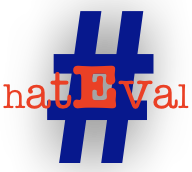This year the International Workshop on Semantic Evaluation introduced a task on detecting online hate speech. The task was open to research teams globally, and the challenge set was to detect hate speech on Twitter directed towards immigrants and women, in a multilingual perspective, for Spanish and English. The HateLab team placed 1st out of 47 entries in Task B: to develop a measurement system to classify hateful tweets for English and Spanish (e.g., tweets where Hate Speech against women or immigrants has been identified) as aggressive or not aggressive, and second to identify the target harassed as individual or generic (i.e. single human or group).
The organisers of the workshop recognise the pernicious problem of online hate speech, stating “Given the huge amount of user-generated content on the Web, and in particular on social media, the problem of detecting, and therefore possibly limiting Hate Speech diffusion, is becoming fundamental, for instance for fighting against misogyny and xenophobia.”
The HateLab team has recently published new cutting-edge methods for measuring online hate speech in three research papers in top peer reviewed journals. The papers in The Web Conference 2019 (formerly WWW), IEEE Transactions on Computational Social Systems and ACM Transactions on the Web demonstrate the utility of ‘Othering’ language embeddings and fuzzy algorithms in improving online hate speech measurement. The team are currently exploring Deep Fusion Network Based Ensemble Learning to further improve results.
Our online hate speech measurement tools are currently top in the field, and are being deployed via our HateLab Dashboard in policy settings in the UK. The National Online Hate Crime Hub, announced by the Home Secretary in 2017, is the site of the pilot implementation where our ethical measurement algorithms will be deployed to monitor the production and spread of hate speech around Brexit at an aggregate level. The same tools will be used in an Online Hate Speech Tracker to be hosted on this site in the summer of 2019, supported by the law firm, Mishcon de Reya.
